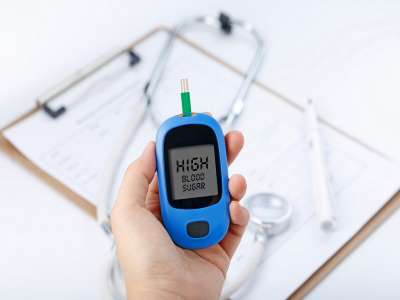Are Home Blood Monitoring Devices for Type 2 Diabetics Actually Any Good?

Being a type 2 diabetic is certainly no fun. As well as the actual symptoms, it’s the actual monitoring of the disease that gets to a lot of people. Having to constantly watch what you eat and know what your blood sugar levels are can become a strain. Having said that, it’s important for diabetics to keep on top of their condition in order to avoid any diabetic related complications such as vision loss, kidney disease, and nerve damage.
However, it appears that having a tight control on the condition can have its drawbacks too, and in some cases, can even cause harm to the person. Previous studies have linked those suffering with longstanding type 2 diabetes have shown that even having the tightest control showed no real significant benefit; some even showed higher rates of cardiovascular disease. Type 1 diabetes sufferers on the other hand did benefit from tighter control, suggesting that this may even help ward off cardiovascular disease.
Cardiologists specialising in diabetes will advise their patients to check their blood sugar levels at home on a daily basis. Typically this involves pricking the finger and then testing the blood with a glucose meter. Should they need to, patients can then share these results with their doctor online, over the phone, or at their next appointment. However, what value this holds for type 2 diabetics remains to be seen.
One study that relates to this involved 450 people who had been diagnosed with type 2 diabetes, but none were taking insulin. They were split into three groups:
- Some who did no self-monitoring of blood sugar levels
- Some who monitored blood sugar levels once per day
- Some who monitored blood sugar levels once per day, but also received advanced feedback from the glucose monitor intended to motivate or educate the participant.
Results from the study showed that after one year, those who self-monitored showed no improvement in regards to their quality of life or in the control of their blood sugar in comparison to those who did not self-monitor.
The results of this study could have a significant impact on millions of type 2 diabetics all over the world. If two thirds of the people involved in the study showed no real improvement after carefully monitoring their symptoms for a whole year, what’s the point in so many others sticking to such harsh routines?
There are of course still some situations where home monitoring is still a good idea, particularly in the following cases:
- If there’s a change in the dose of the person’s diabetic medication
- If the person has gained or lost a considerable amount of weight recently
- If the person’s only just started taking insulin
- If the person’s developed an infection of any kind
- If the person has added or stopped taking one of their medications
The study did not consider these situations and so therefore is unable to draw up any conclusions in regards to them. Another thing to note is that the study only lasted for one year, which may not have been long enough to see the true effects of the home monitoring.
While the new study does suggest people with type 2 diabetes may not necessarily benefit from home monitoring it is always best to check with your doctor before taking any action in regards to your treatment.